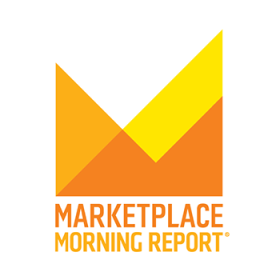
Marketplace Morning Report
Weekdays during Morning Edition (6:51am and 8:51am)
Marketplace Morning Report is the morning sister program from the award-winning staff of Marketplace. Bringing you the morning business news "for the rest of us" in the time it takes you to drink your first cup of joe, MMR is a great way to start your day.
-
This week, the Equal Employment Opportunity Commission finalized regulations to ensure that most employees around the country are entitled to unpaid time off and other accommodations for a range of pregnancy-related medical needs, from nausea and gestational diabetes to abortion care. We’ll learn more. Also on today’s show: a drumbeat of “higher for longer” from Fed officials, the Biden administration’s show of support for American steel, and gaming furniture that’s all grown up.
-
When the Francis Scott Key Bridge in Baltimore was built in the ’70s, it was a chance for workers to prove themselves on a massive construction project. Following its collapse, those workers look back on what many considered to be a monument to their work — and what happens when that monument is gone. Also: foreign aid could be bundled with a forced sale of TikTok, and European Union leaders agree to tighten sanctions on Iran.
-
From the BBC World Service: The European Commission has given TikTok 24 hours to provide more information on its new app, which pays users to watch videos, as officials raise concerns about potential harms. Then, we’ll hear more about the European Union’s efforts to sanction Iran following its attack on Israel. And later on the show: Why is the Pacific Island of Palau’s tourism sector struggling to recover from the pandemic?
-
The United Auto Workers union is trying to organize foreign vehicle factories in the South, and today, workers at a Volkswagen factory in Chattanooga, Tennessee, begin voting on whether to join the UAW. We’ll hear what’s at stake. Then, we’ll take a look at why TGI Friday’s is faltering while Texas Roadhouse thrives. Plus, a look at how a Detroit deconstruction company provides jobs and promotes sustainability.
-
For this month’s Econ Extra Credit, we’re watching “The League,” which chronicles the history of baseball’s Negro Leagues, established several decades before the sport was integrated. The Leagues gave rise to many Black businesses and entrepreneurs. Today, we have a conversation with Larry Lester, co-founder of the Negro Leagues Baseball Museum in Kansas City, Missouri. Also on the program: Aircraft-maker Boeing faces scrutiny over safety practices during two Senate hearings.
-
From the BBC World Service: Despite extensive sanctions, the International Monetary Fund has forecast Russia’s economy will grow more than any other rich nation this year. Also: The small Pacific Island nation of Palau has warned delays to U.S. funding could open the door to China’s influence in the region.
-
The European Union’s Digital Services Act requires big internet platforms to create searchable public libraries of their ads, allowing researchers to see who an ad is targeting and reaching and what it’s urging its audience to do. But a new assessment finds that those libraries are lacking. We dig in. Plus, China’s economy grew faster than expected, but Chinese consumers are still struggling. We’ll also hear how to find reasonably high interest rates on savings.
-
Big corporate landlords provide the company RealPage with data you can’t just see on Zillow, like the rent a tenant actually pays versus what’s advertised publicly. In return, the company recommends a rent price to set. Now, lawsuits are alleging that RealPage uses the data for wide scale rent-fixing. Also: the latest news on shares of Trump Media and a frank conversation about the shame that comes with debt.
-
From the BBC World Service: Economic growth in China, the world’s second biggest economy, beat expectations in the first quarter. Official data shows it’s being led by the manufacturing sector, but domestic demand is still weak. Plus, the Panama Canal will permit more ships from next month, easing congestion. And Colombia has become a top destination for so-called digital nomad; we take a look at how this is affecting the economy.
-
On today’s program, we’re taking a closer look at immigration and entrepreneurship. Immigrants are more likely to start a new company than U.S.-born citizens, studies show. And those new businesses need to make hires — turns out, immigrant entrepreneurs are associated with a net gain in jobs. We’ll discuss. Also, a boost in the Internal Revenue Service budget seems to be making a difference, and investors respond to rising tensions in the Middle East.
